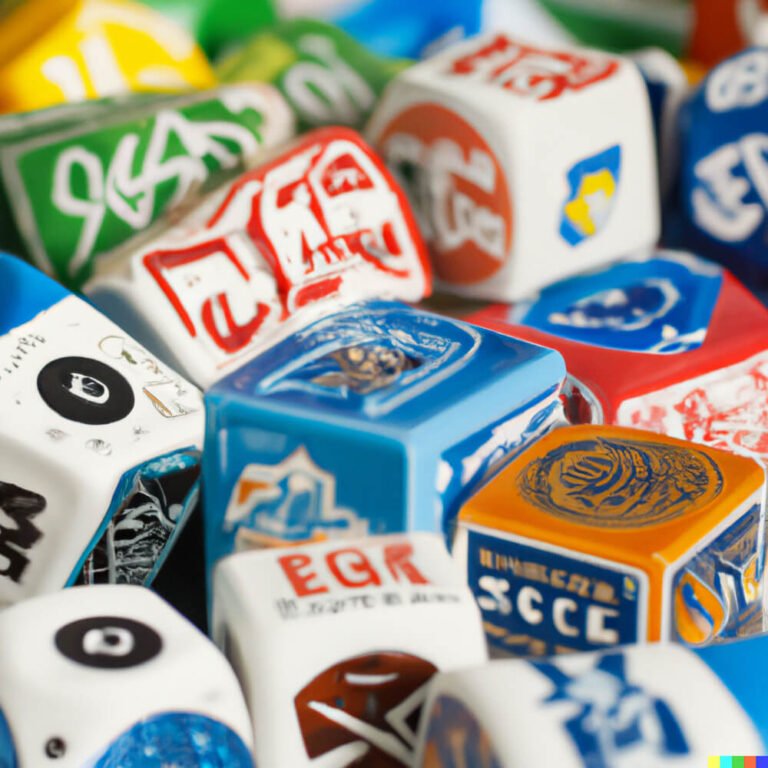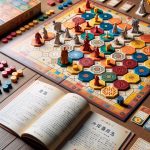Classic Japanese board games have a rich history and deep cultural significance in Japan. From traditional games like Go and Shogi to modern adaptations, these timeless pastimes have been enjoyed by people of all ages for centuries. The enduring appeal of classic Japanese board games lies in their ability to challenge players’ strategic thinking while reflecting the intricate traditions and values of Japanese culture.
In this article, we will explore the world of classic Japanese board games, delving into their historical roots and examining the impact they have on both society and daily life in Japan. From an overview of popular games to insights into game strategy and skills, we will provide an in-depth look at how these games have evolved over time and continue to capture the imagination of players worldwide.
Furthermore, we will examine the global appeal of classic Japanese board games and offer recommendations for where enthusiasts can play these games in Japan or purchase them both domestically and internationally. It’s time to embark on a journey through the captivating world of classic Japanese board games, celebrating their enduring legacy and cultural significance.
Types of Classic Japanese Board Games
Classic Japanese board games have a rich and diverse history, with many games dating back centuries. Some of the most popular classic Japanese board games include Go, Shogi, and Hanafuda. Go, known as “Igo” in Japan, is a two-player strategy game that originated in China over 2,500 years ago.
Shogi, also referred to as Japanese chess, is similar to Western chess but features unique rules and pieces. Hanafuda, on the other hand, is a card game that has been enjoyed in Japan for generations.
One key element that sets classic Japanese board games apart from their Western counterparts is the emphasis on strategy and skill. These games often require players to think several moves ahead and rely on tactics like pattern recognition and memorization of complex gameplay patterns. Mastery of these skills can take years of practice and dedication.
Go is often hailed for its simplicity yet deep complexity, making it a favorite among enthusiasts around the world. Shogi’s intricate rules and various piece movements make it a challenging game beloved by those who enjoy strategic thinking. Hanafuda’s beautiful cards featuring floral motifs hold cultural significance in Japan and are often associated with various seasonal celebrations.
Overall, classic Japanese board games offer a unique blend of simplicity with deep complexities that appeal to players of all ages who appreciate strategy and skill. In addition to being enjoyable pastimes, these games reflect the values and traditions of Japanese culture while providing endless opportunities for intellectual stimulation.
| Game | Description |
|---|---|
| Go (Igo) | A two-player strategy game originating from China over 2,500 years ago. |
| Shogi (Japanese Chess) | Similar to Western chess but with unique rules and piece movements. |
| Hanafuda | A traditional card game featuring cards adorned with floral motifs widely enjoyed in Japan. |
Strategy and Skills
Classic Japanese board games are not only entertaining but also require a great deal of strategy and skill to master. Whether it’s the strategic placement of pieces in Shogi or the careful planning of moves in Go, these traditional games offer a mental challenge that has captivated players for centuries. Each game has its own unique set of rules and principles, making them a fascinating and rewarding pursuit for those willing to learn.
One key element of strategy in classic Japanese board games is the ability to anticipate and plan several moves ahead. This forward-thinking approach is crucial in games like Igo (Go), where players must consider not only their current move but also the potential consequences several turns down the line. Developing this skill can have far-reaching benefits beyond the game board, as it fosters problem-solving abilities and enhances cognitive thinking.
Mastering the skills required for classic Japanese board games takes time, patience, and practice. These games often have intricate rules and nuances that can be challenging to grasp at first, but perseverance can lead to a deep understanding of the game. In addition to strategic thinking, many of these games require a keen sense of observation, adaptability, and patience – qualities that are valuable both in gameplay and everyday life.
| Game | Main Skill Required |
|---|---|
| Shogi | Strategic Planning and Positioning |
| Igo (Go) | Anticipation and Adaptability |
| Mahjong | Memory and Pattern Recognition |
Cultural Impact
Classic Japanese board games have a profound impact on Japanese culture and society, serving as a reflection of the traditions and values that are deeply rooted in the country’s history. These games not only provide entertainment but also offer insights into the way of thinking and strategic approach that is highly esteemed in Japanese culture.
The cultural impact of classic Japanese board games is evident in various aspects of daily life. For instance, many traditional Japanese board games emphasize honorable conduct, respect for opponents, and appreciation for skillful play. These principles align with the core values of respect, discipline, and perseverance that are highly valued in Japanese society.
Furthermore, classic Japanese board games such as Go and Shogi have historical significance, as they have been played for centuries and are deeply intertwined with Japan’s rich cultural heritage. These games have become iconic symbols of traditional Japanese leisure activities and continue to be celebrated through tournaments, exhibitions, and cultural events across the country.
Classic Japanese board games also showcase the importance of harmony and balance-a concept known as “Wa” in Japan-by emphasizing strategic thinking, patience, and thoughtful decision-making. The influence of these games extends beyond mere entertainment, illustrating how traditional values are perpetuated through the enjoyment and mastery of these timeless pastimes.
- Traditional Japanese board games emphasize honorable conduct
- Many classic board games align with core values of respect and discipline
- Games like Go and Shogi hold historical significance in Japan
Modern Adaptations
Classic Japanese board games have a rich history that dates back centuries, but they have continued to evolve and adapt to the modern era. Today, these beloved games have been reimagined in various ways to appeal to contemporary audiences and cater to diverse interests. Here are some examples of modern adaptations of classic Japanese board games:
- Smartphone and Online Versions: Many classic Japanese board games, such as Shogi and Go, have been adapted into smartphone apps and online platforms, allowing enthusiasts to play against opponents from around the world.
- Updated Designs and Themes: Some classic Japanese board games have received fresh updates in terms of design and themes. For example, traditional Shogi sets have been redesigned with modern aesthetics, while new versions of Hanafuda feature popular characters from anime and manga.
- International Collaborations: In recent years, there has been a surge in collaborations between Japanese board game designers and international creators. This has led to innovative variations of classic Japanese board games that incorporate elements from different cultures.
The modern adaptations of classic Japanese board games reflect the enduring popularity of these timeless pastimes while also embracing innovation and change. Whether it’s through digital platforms, updated visuals, or cross-cultural influences, these adaptations ensure that classic Japanese board games remain relevant and engaging for a new generation of players.
Notable Japanese Board Game Designers
The world of classic Japanese board games has been shaped significantly by a number of influential and innovative game designers. These individuals have played a pivotal role in the development and evolution of timeless games that continue to captivate players around the globe. Their contributions have not only enriched the gaming experience but have also left a lasting impact on the cultural significance of classic Japanese board games.
One such notable figure is Reiner Knizia, a German-born designer whose creations have had a widespread influence on classic Japanese board games. His strategic and intellectually stimulating designs have resonated with players worldwide, and he has collaborated with Japanese publishers to bring his games to the Japanese market. His dedication to creating engaging gameplay experiences has earned him recognition as one of the most prolific and versatile game designers in the industry.
Another prominent figure in the world of classic Japanese board games is Seiji Kanai, known for his inventive and minimalist approach to game design. With titles like Love Letter, Kanai has gained acclaim for crafting elegantly simple yet deeply strategic games that have garnered international success. His ability to distill complex gaming concepts into accessible and compelling experiences has greatly contributed to the appeal of classic Japanese board games beyond Japan’s borders.
Finally, Masao Suganuma is recognized for his creative contributions to classic Japanese board games, particularly in the realm of card-based gameplay. Through innovative designs like Machi Koro, Suganuma has demonstrated a talent for infusing traditional gaming elements with modern twists, appealing to both seasoned enthusiasts and new audiences alike. His fresh perspective has helped pave the way for contemporary adaptations of classic Japanese board games that resonate with players from diverse backgrounds.
Global Appeal
Classic Japanese board games have gained a significant amount of popularity on the international stage, with enthusiasts and players from all over the world embracing these traditional pastimes. The global appeal of classic Japanese board games can be attributed to a variety of factors, including their unique gameplay, cultural significance, and accessibility. These games have transcended geographical boundaries and continue to captivate players of all ages, making them a beloved part of the global gaming community.
One key factor contributing to the global appeal of classic Japanese board games is their distinctive gameplay mechanics and strategic depth. Games such as Go and Shogi are renowned for their complexity and require a deep understanding of tactics and strategy.
This level of depth provides players with a challenging yet rewarding experience, making these games appealing to those who enjoy intellectually stimulating activities. Additionally, classic Japanese board games often emphasize skillful decision-making and calculated moves, which adds an extra layer of excitement for players seeking engaging gameplay.
Furthermore, the cultural significance of classic Japanese board games plays a crucial role in their global appeal. These traditional games offer insight into Japanese customs, traditions, and historical influences, allowing players from around the world to gain a deeper understanding and appreciation for Japanese culture.
As a result, the universal appeal of these games goes beyond mere entertainment, providing an enriching experience that fosters cross-cultural connections. Whether it’s the iconic imagery or the time-honored customs embedded in these board games, their cultural resonance has undoubtedly contributed to their worldwide popularity.
Where to Play and Buy
In Japan, classic board games hold a special place in the hearts of the people, and there are various places where enthusiasts can gather to play and celebrate these beloved games. Traditional game cafes and specialized board game shops can be found throughout the country, offering both locals and visitors an opportunity to experience the rich history and cultural significance of classic Japanese board games.
These establishments often provide a welcoming environment for players of all skill levels to come together and enjoy a shared love for these timeless games.
For those seeking a more immersive experience, there are also board game events and tournaments held in different cities across Japan. These gatherings not only allow players to showcase their skills but also serve as a platform for promoting camaraderie among fellow enthusiasts. Whether it’s at a cozy game cafe or a lively tournament venue, the spirit of competition and camaraderie thrives within the Japanese board gaming community.
While in Japan, discovering classic Japanese board games is not just limited to playing them in public spaces – enthusiasts can also bring home their own copies as souvenirs. There are numerous shops dedicated to selling traditional Japanese board games, ranging from small independent stores to larger retailers that offer an extensive selection of games.
Visitors can explore these establishments to find unique editions or even rare vintage copies of classic Japanese board games, providing an opportunity to take home treasured pieces of Japanese culture.
Additionally, with the rise of e-commerce platforms, interested individuals around the world can easily purchase classic Japanese board games online from specialty stores that specialize in selling traditional Asian games. This accessibility has made it possible for enthusiasts outside of Japan to acquire and enjoy these culturally significant games, further expanding their global appeal. Whether as a memento from a trip or as part of a growing international collection, classic Japanese board games are readily available for purchase worldwide.
Conclusion
In conclusion, classic Japanese board games have stood the test of time and continue to hold a special place in Japanese culture. From the ancient origins of games like Go and Shogi to the modern adaptations and variations that have emerged in recent years, these traditional board games offer a unique glimpse into the strategic, skill-based entertainment that has captivated players for centuries.
Not only do classic Japanese board games provide hours of enjoyable gameplay, but they also reflect the values, traditions, and cultural heritage of Japan. The influence of these games can be observed in various aspects of Japanese society and daily life, showcasing their enduring impact on the country’s cultural landscape.
As classic Japanese board games gain international recognition and appeal, it is evident that their timeless enjoyment transcends cultural boundaries. Whether played in traditional venues in Japan or enjoyed by enthusiasts around the world, these beloved games continue to inspire strategic thinking and meaningful connections among players of all ages. With their rich history, deep-rooted significance, and global appeal, classic Japanese board games are undoubtedly an essential part of the world’s gaming heritage.
Frequently Asked Questions
What Is Japan’s Most Popular Board Game?
Japan’s most popular board game is Go, also known as Igo in Japanese. It is a strategy game that originated in China over 2,500 years ago and has been played in Japan for over a thousand years. Go is widely popular in Japan, attracting professional players and hosting official tournaments.
What Is the Oldest Japanese Board Game?
The oldest Japanese board game is Sennet. It dates back to the Heian period (794-1185) and was played by the nobility of the time. Sennet involved moving pieces on a gridded board, similar to modern-day chess or checkers, and was considered an important pastime among the aristocracy.
What Is the Japanese Version of Chess?
Shogi is known as the Japanese version of chess. It shares some similarities with Western chess but also has its own unique rules and gameplay.
Shogi is often referred to as “the generals’ game” due to its military-themed concept, which involves capturing the opponent’s pieces while protecting one’s own army. This traditional board game remains popular in Japan today.

I love playing all kinds of games – from classics like Monopoly to modern favourites like Ticket to Ride.
I created this blog as a way to share my love of board games with others, and provide information on the latest releases and news in the industry.





